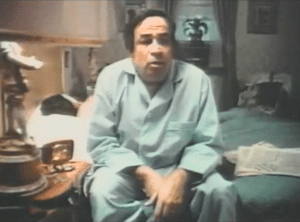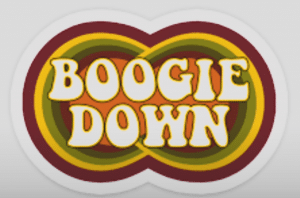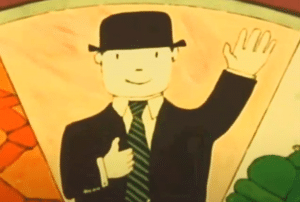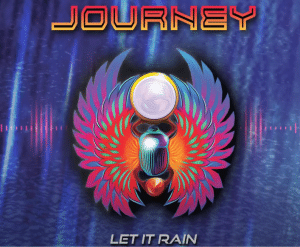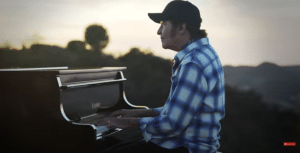How “Stairway To Heaven” Was Written
blurtonline.com
The Story Of An Unequivocal Masterpiece
It’s one of the greatest rock songs of all time and a track that’s closely associated with the legendary band Led Zeppelin. Just this year, it was once again brought to the spotlight which is probably the reason why the YouTube videos has more than a 100 million hits already. Haters may say it’s overrated but dang, the hype is well-deserved. It’s the best spell we’ve fallen under in the ’70s and we just can’t shake it off that easily even decades later.
By now, you probably know that the surviving members were sued for copyright infringement because they allegedly stole the riff from a Spirit’s instrumental “Taurus.” And well, they emerged victorious after winning the trial. But what is the fuss all about?
How did they really come up with one incredible song that’s the epitome of perfection? Are they really just a bunch of dudes who happen to be musical geniuses too? Or is there more to the story?
So to answer these burning questions, let’s take a trip down memory lane and dig as much information as we can gather.
Ready?
HOW IT ALL BEGAN
In the ’70s, it was the most requested song on the radio. You see, it all began in 1970 after Led Zeppelin finished their Spring 1970 North American Tour on April 18. Robert Plant and Jimmy Page were vacationing at a privately owned 18th-century cottage in Wales called Bron-Yr-Aur. Page was always bringing a cassette recorder with him in case inspiration would strike. And it did one night.
It took him a long time to finish the composition but the first part was created during their stay at the cottage. When they got back, Page already had the guitar intro and verse. He said:
“I had these pieces, these guitar pieces, that I wanted to put together. I had a whole idea of a piece of music that I really wanted to try and present to everybody and try and come to terms with.”
When John Paul Jones heard it, he added a run-down riff before moving to the piano and dubbing on the guitars. Then, they kept working on some changes, basically trying to decide what goes where and how to make the transition between sections as flawless as it can possibly be.
Take note, though, when Page presented his ‘idea’ to the band, they weren’t exactly enthusiastic or bowing down to him. They were rather thinking how tricky it was. It wasn’t something they were used to and although there were sections, they weren’t repetitive. But Page had the vision, he knew what he wanted to accomplish and what needed to be done.
“It begins with the concept of trying to have something [that] would unravel in layers as the song progressed. You’ve got the fragile guitar that is going to open the whole thing, you’ve got the vocal over that fragile guitar, and then it moves into the more sensual wave with the twin 12-strings, and the electric piano as well.”
By the time they were staying at their country house in Headley Grange, Page was going from an acoustic guitar to an electric one and strumming the chords while Plant was just writing in the corner. Suddenly, Plant started singing. It was like he was almost finished with the lyrics!
But as Plant said, it was spontaneous and that “a huge percentage of the lyrics were written there and then”. Nevertheless, his main inspiration for the words was British antiquarian Lewis Spence’s book on “The Magic Arts in Celtic Britain” because it was what he was reading at the time.
Perhaps it helped a lot that they were all living in one house. They could easily get up in the middle of the night or early in the morning to work out the kinks. However, while everything else was running smoothly, John Bonham was stuck in the twelve-string part before the solo because he couldn’t get the timing right.
So why did it took a long time to finish the song? Page has the perfect answer:
“Going back to those studio days for me and John Paul Jones, the one thing you didn’t do was speed up, because if you sped up you wouldn’t be seen again. Everything had to be right on the meter all the way through. And I really wanted to write something which did speed up, and took the emotion and the adrenaline with it, and would reach a sort of crescendo. And that was the idea of it. That’s why it was a bit tricky to get together in stages.”
DISSECTING THE SONG
‘Stairway To Heaven’ consists of several sections: the introduction starts off with Page’s six-string guitar along with recorders as he finger-picks his way to create a Renaissance music style. And it slowly transitions into the middle section which lasts for a little over 3 minutes. Then comes a long, face-melting guitar solo – Page’s carefully crafted masterpiece. It starts out slow, then gains momentum and bam! It suddenly rushes headlong into the fast, hard rock final section. You wouldn’t know what hit you. And it’s perhaps one of Page’s finest moments. It then ends with a vocals-only epilogue by Plant.
WHAT DOES IT MEAN?
It might come across as confusing to most listeners especially because the first verse doesn’t exactly fit with the whole context of the song. The lady seems to be so sure that she can buy a stairway to heaven but as it progresses, there was something dark that’s about to happen. Maybe Plant was saying it all along, that “sometimes words have two meanings.”
For the record, there is NO actual meaning. Although Plant has once said:
“Depending on what day it is, I still interpret the song a different way- and I wrote it.”
And even reinforced that fact during the promotion of the concert film ‘Celebration Day’ in 2012:
“I struggle with some of the lyrics from particular periods of time. Maybe I was still trying to work out what I was talking about … Every other f****r is.”
But on another occasion, he also claimed:
“My hand was writing out the words “There’s a lady is sure (sic) all that glitters is gold and she’s buying a stairway to heaven.” I just sat there and looked at them and almost leapt out of my head… It was some cynical aside about a woman getting everything she wanted all the time without giving any thought or consideration. That first line begins with that cynical sweep of the hand… and it softened up after that.”
Page, on the other hand, seemed to agree with Plant’s initial comment on its speculative meaning because he commented:
“I knew it was good, but I didn’t know it was going to be almost like an anthem. The wonderful thing about Stairway to Heaven is the fact that everyone has their own individual interpretation to it, and actually what it means to them at their point if life.”
INTERESTING FACTS
- During the 20th year since the song was released, it was estimated that radio stations have it played for over 2,874,000 times or around 44 years of airtime.
- At one point, Plant got so tired of having to sing it over and over and was even quoted saying:
“I’d break out into hives if I had to sing Stairway to Heaven in every show. I wrote the lyrics and found the song to be of some importance and consequence in 1971. But 17 years later, I don’t know. It’s just not for me. I sang it at the Atlantic Records show because I’m an old softie and it was my way of saying thank you to Atlantic because I’ve been with them for 20 years, but no more of Stairway to Heaven for me.”
In fact, rumors had it that Plant made a monetary pledge to a radio station in exchange for the promise to stop playing the song.
- Their live performance at Live Aid was perhaps the most unusual because according to Plant:
“The whole idea of playing ‘Stairway to Heaven’ with two drummers while Duran Duran cried on the side of the stage – there was something really quite surreal about that.”
- Some say that if you play it backwards, you can hear the words: “Here’s to my sweet Satan.” There’s no actual proof to this claim.
- When they performed it live on March 5, 1971 at the Belfast’s Ulster Hall, the crowd was less than impressed. John Paul Jones recalls:
“They were all bored to tears waiting to hear something they knew.”
- The double-necked guitar makes it easier for Page to perform this live because he can alternate from using the 6-string to the 12-string.
At the end of it all, Page wanted something that would thrill the audience – a song that would increase in tempo and intensity, almost like it can make you want to hold on to your seat. In a way, he aimed for it to become some sort of mystery – a different layer unfolding and unraveling with each section, surprising the listener and adding more anticipation.
Maybe the appeal of ‘Stairway To Heaven’ lies in its mysticism. It’s seductive that way. It makes you want to learn its secrets (what it means, how it came about) without really revealing too much.
Can we all agree this is the song that showed the band members (individually and collectively) at their best?





